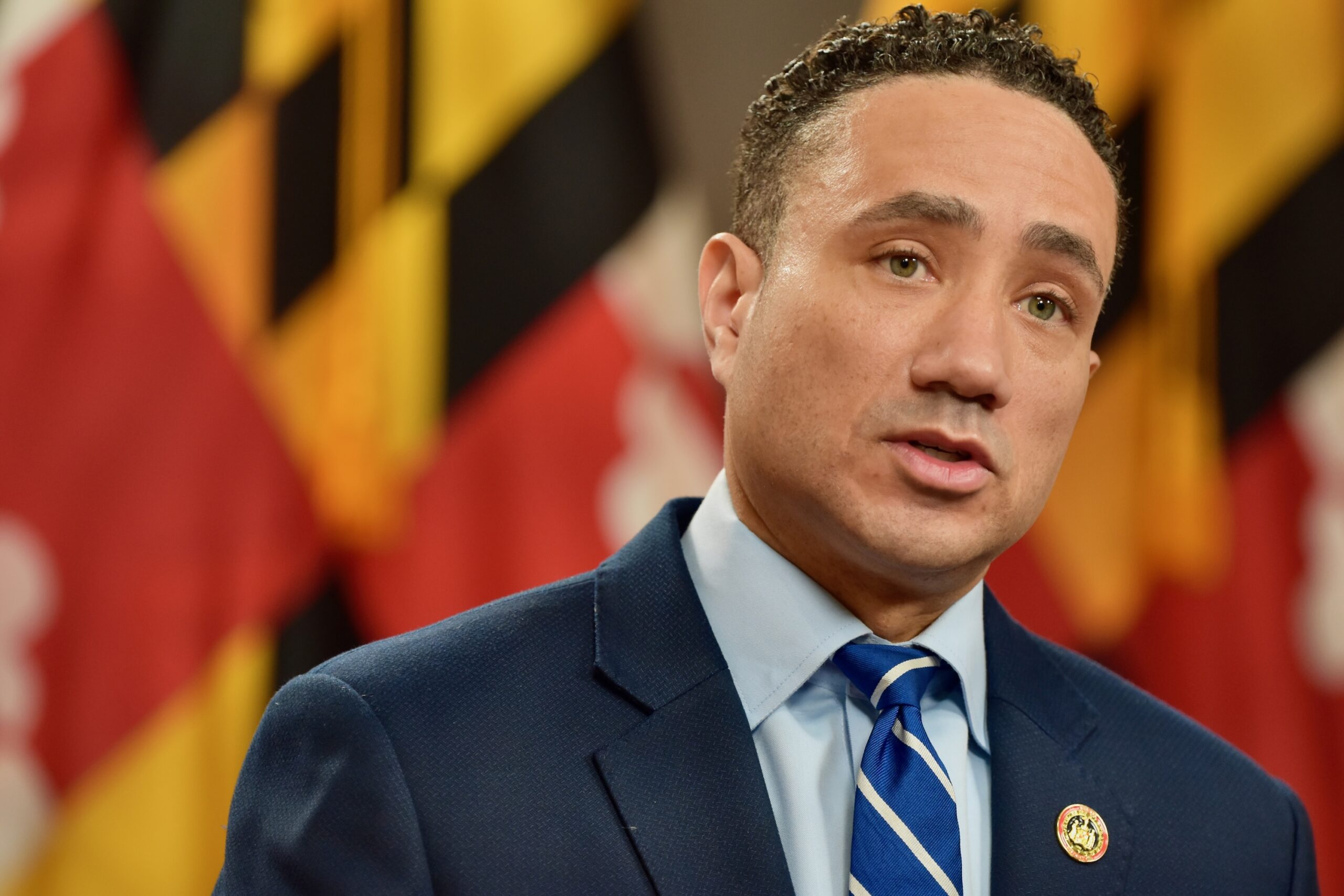Legislative notes: Housing bills finding shelter, another juvenile justice debate, mental health treatments, new women’s caucus leaders

Three of Gov. Wes Moore’s (D) priority bills to create affordable housing options are nearing the finish-line in the waning days of the General Assembly session.
One of the bills is ready for his signature. House Bill 599 would create the Maryland Community Investment Corporation, a state entity that would make loans or investments aimed at developing and improving low-income communities.
The Senate passed the bill on a 30-9 vote Friday afternoon. It has already received House approval.
Two other bills in Moore’s housing package also have House approval and are expected to receive a Senate vote either Saturday or Monday, which is the last day of the 2024 session.
HB 693, known as the Renters’ Rights and Stabilization Act, Office of Tenants and Landlord Affairs in state government, which would help tenants know what protections and legal actions they have under Maryland law. The bill also raises certain fees involved in the eviction process to reduce the number of unnecessary evictions, among other measures.
Senate Minority Whip Justin Ready (R-Carroll and Frederick) attempted to amend HB 693 Friday, adding processes that would make it easier for property owners to use law enforcement to remove “squatters” residing in their homes without permission, inspired by a new Florida law that was signed by Florida Gov. Ron DeSantis (R) just a week prior.
“This is just a common-sense safeguard that I think would be great to put into place,” Ready said.
Senate Judicial Proceedings Chair William C. Smith Jr. (D-Montgomery) argued that Maryland already has “a strong and tight unlawful detainer statute,” so the amendment was not necessary. The amendment was rejected.
The other bill likely to soon receive a vote for final passage is HB 538, which aims to incentivize developers to add affordable housing options in future developments and would allow certain development projects to exceed typical density limits if the new development incorporates a certain percentage of affordable housing units.
Over the course of the legislative process, the percentage of affordable housing units required to receive those density bonuses has been watered down from Moore’s initial legislation.
Amended juvenile bill passes
The juvenile justice reform measure amended this week in the Senate received final approval in the House of Delegates on Friday.
Some of the provisions include requiring a youth charged for motor vehicle theft to receive a Children in Need of Supervision petition, also known as CINS. The petition would allow that youth and the youth’s family to qualify for a variety of services.
Another provision would require all 23 county and Baltimore City school boards to offer alternatives to public education for youths registered as juvenile sex offenders.
A proposed new Commission on Juvenile Justice Reform and Emerging and Best Practices, which would review state Department of Juvenile Services programs and services, would hold its first meeting by June 1.
The 114-8 vote on the amended bill was similar to the overwhelming support it had last month. Five delegates who voted against it last time — Gabriel Acevero (D-Montgomery), Tiffany Alston (D-Prince George’s), Debra Davis (D-Charles), Ashanti Martinez (D-Prince George’s) and Caylin Young (D-Baltimore City) — voted against it again on Friday.
The sixth delegate who voted against the measure in March, Jamila Woods (D-Prince George’s), had an excused absence Friday.
Three additional lawmakers voted against the measure Friday: Dels. Lorig Charkoudian (D-Montgomery), Charlotte Crutchfield (D-Montgomery) and Malcolm Ruff (D-Baltimore City).
Charkoudian and Ruff voted for the bill last month.
Crutchfield said she didn’t support the bill because it allows expansion of DJS jurisdiction to include children ages 10 to 12.
“I believe that there’s so much here we can do to help our young people. The way to do it is not through this legislation,” said Crutchfield, who had an excused absence when the bill was voted on last month.
Friday’s tally sheet shows 11 delegates didn’t vote.
Del. Luke Clippinger (D-Baltimore City), chair of the House Judiciary Committee, said the next step will be for the commission to begin its work in June to assess the department.
“It’s time for real oversight to happen over the agency,” he said during an interview with reporters. “It’s been a very long process and it’s not going to stop. This is always going to be something that is a priority for so many of us because we do not want to see the kids fail.”
Court-ordered mental health treatments approved
The Senate unanimously approved a sensitive bill that would permit court-ordered mental health treatments for people with persistent and significant mental health needs if they do not voluntarily agree to a treatment program.
Friday, the Senate approved HB 576, titled “Emergency Evaluation and Involuntary Admission Procedures and Assisted Outpatient Treatment Programs.”
The House already approved the measure on a 137-2 vote. The bill is heading to the governor’s desk for Moore’s consideration.
The bill creates an “assisted outpatient treatment” program across the state, in which a circuit court can order a specified mental health treatment regimen for someone with severe and persistent mental health needs — potentially without their consent.
Advocates for the bill say it’s devastating to watch a loved one with severe mental illness cycle in and out of hospitals due to symptoms of their severe mental health needs.
But some disability rights and mental health advocates say that assisted outpatient treatment programs leave out the voices of those with mental health needs and is more concerned with the needs of the family.
Despite emotional testimony from the public throughout the committee process, the Senate approved the bill without discussion or debate on the floor.
The 44 “yes” votes in the Senate included Sen. Clarence K. Lam (D-Howard and Anne Arundel), a public health doctor who just days before expressed concern that there were few barriers to which treatment or procedures could be court ordered without the consent of the recipient. Lam previously withheld his vote on the bill when it was discussed in the Senate Finance Committee Monday.
New women’s caucus officers
The Women Legislators of Maryland, better known as the women’s caucus, recently elected its officers for the upcoming year.
The caucus unanimously selected Del. Dana Jones (D-Anne Arundel) as president, Del. Michele Guyton (D-Baltimore County) as first vice president, Del. Jennifer White Holland (D-Baltimore County) as second vice president, Del. Brooke Grossman (D-Washington) as secretary, Del. Linda Foley (D-Montgomery) as treasurer, and Dels. Kym Taylor (D-Prince George’s) and Jackie Addison (D-Baltimore City) as at large members of the board.
The outgoing president of the women’s caucus, Del. Edith J. Patterson (D-Charles), said this year’s board “has been remarkably effective and met each priority set this year.”
“When I look at these courageous women who will be leading the charge for the next session, I am filled with pride and hope,” she said. “There is a bright future for women in Maryland.”






 Creative Commons Attribution
Creative Commons Attribution